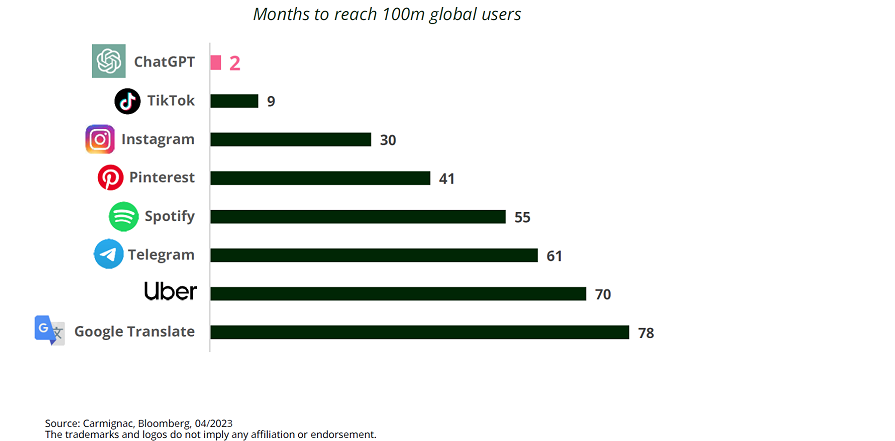Advances in artificial intelligence as showcased by ChatGPT could end Google’s near monopoly of the search engine market, making parent company Alphabet “uninvestable”, according to Stephen Yiu, manager of the LF Blue Whale Growth fund.

Alphabet was formerly a top-10 holding in LF Blue Whale Growth, but Yiu sold out of it last year on fears that the slowing economy would lead to a fall in digital advertising spend.
The manager said he had planned to buy back in when some of the economic headwinds began to dissipate. However, he said it is lucky he didn’t as he has realised Google’s previously insurmountable economic moat is now vulnerable.
“Google accounts for more than 90% of the search engine market and the reason that its competitors haven’t been able to gain traction is because of the way its algorithm works,” Yiu explained.
“If 1,000 people search for ‘the best ISA fund to invest in’ before you do, you would reap the benefits of their research as Google would know what page they spent the most time on and put it top of its results. If you're a new search engine, it is impossible to get traction.”
Yiu said this was evident in the poor functionality of Bing when it first launched, which made him think that the potential threat from new competitors was non-existent.
However, he said that a couple of days experimenting with ChatGPT recently turned this hypothesis on its head.
“The software is based on an algorithm that requires little to no user input – all the information that it needs is already on the internet and it can train itself to come up with sensible answers to most queries,” he continued.
“This means that anyone with a couple of data scientists can now start a search engine.”

Yiu said this doesn’t necessarily mean the end for Alphabet and he expects Google to maintain its position as the dominant search engine. However, he said that for him to invest in a company, he needs to be able to model the performance of the business over a period of at least five years.
Whereas previously it would have been reasonable to predict Google’s market share would remain at about 90% over this period, it is now impossible to make this assumption with any conviction.
He added that you only have to look at the changing competitive environment of another tech giant, Netflix, to get an idea of the problems that lie ahead for Google.
“Ten years ago, Netflix was the first mover in content streaming,” the manager said. “This was before we had the full rollout of 5G or fibre broadband, so only a subset of the population had access to the streaming capability. But [co-founder] Reed Hastings was very droll about this being the future once the infrastructure was in place.
“If you believed him, you probably would have expected Netflix to have 70 to 80% market share by now. But Netflix only has about 20% market share. There are another five players out there competing for our wallet.”
Yiu added: “There’s no alternative to Google at the moment, which is why it is so expensive as everyone is competing to advertise the same search term. But if more people use other search engines, Google loses its pricing power.”
So which search engine is going to move into Google’s territory? Bing, which is owned by Microsoft, is Google’s nearest competitor, even though it has less than 3% of market share. However, while Bing’s mobile app was downloaded just 800,000 times last year, it reported a further 750,000 in the week after it announced it had integrated ChatGPT into its search engine.
Microsoft is one of the largest positions in LF Blue Whale Growth, but Yiu didn't buy it in the expectation it would dominate artificial intelligence. Instead, he is using the fund's largest holding, Nvidia, to play this theme.
“Nvidia is the market leader in the GPU that has put itself at the heart of artificial intelligence by enabling the training of the algorithm,” the manager said.
“We have no idea what ChatGPT is going to do – it might disappear just like so many other early tech leaders.
“But what we do know is if you're providing the mission-critical equipment to enable that capability of artificial intelligence, which is what Nvidia does, then you're going to win.”





